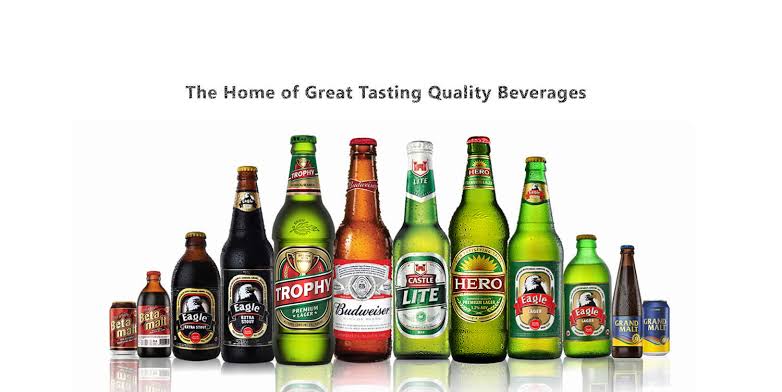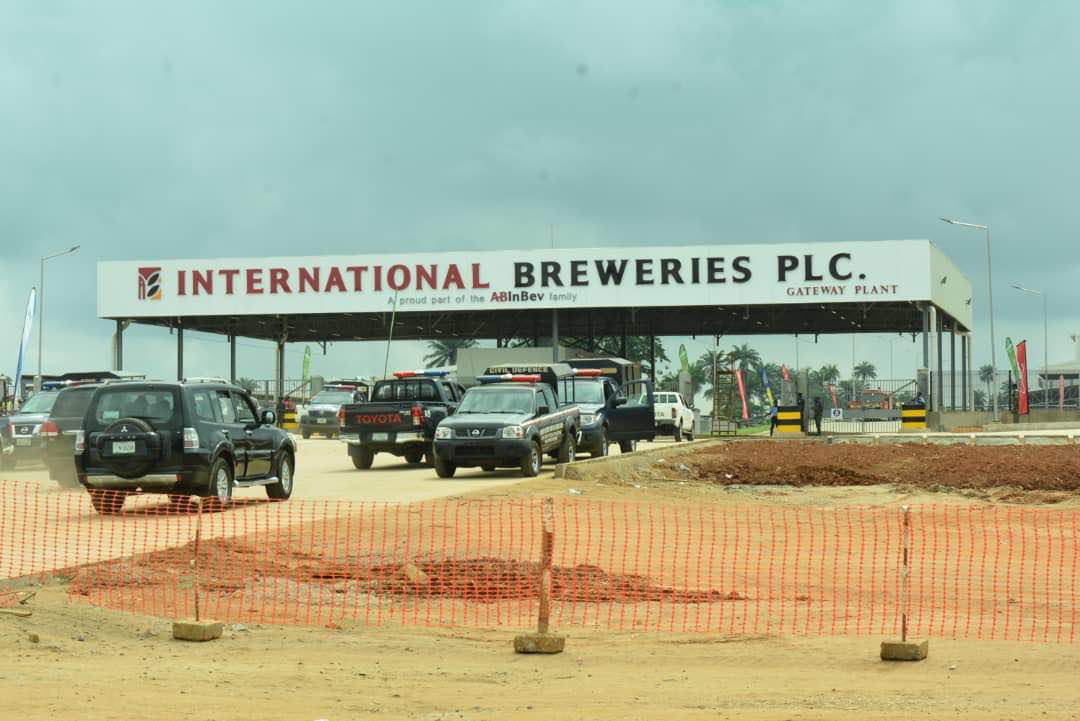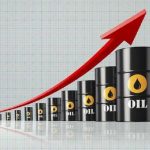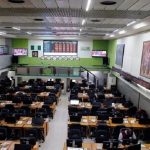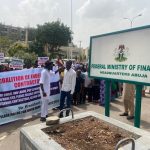Economy
ANALYSIS: The Problem With International Breweries N165bn Rights Issue

By Dipo Olowookere
Not too long ago, the board of International Breweries announced that it plans to raise about N165 billion from its existing shareholders through rights issue.
According to board, proceeds from the exercise would be wholly used to refinance part of the N245 billion debts the brewery giant incurred from five local and foreign lending institutions; Citibank N.A, Zenith Bank, Standard Chartered Bank Nigeria, Stanbic IBTC and Rand Merchant Bank Nigeria.
Analysts at Meristem Research said if this exercise is 100 percent successful, the company’s debt burden should significantly reduce by 66 percent to about N81.90 billion, with the finance costs hovering between N5.5 billion and N6 billion in 2020.
But it noted that while this should be good news to shareholders of the firm, the bitter truth is that International Breweries has been operating at a loss since 2017 and that the N165 billion rights issue may have little impact on the overall performance of the company without a strategy to effectively cut costs.
“We note that the financing decision does not solve the operating problems of the company which is responsible for the poor margins,” the investment firm said in its report seen by Business Post.
It further said, “Costs have been high and hampering profits and if this persists, the company’s performance will not improve. Therefore, we believe that International Breweries’ current operating profile negatively affects its ability to deliver value to shareholders.”
“In addition, the potential dilution in earnings will erode the near-term benefits. We also expect that the company will require additional capital to boost its working capital needs, a measure that will not materialise with this issue.
“Hence, we expect it to raise debt in the near term or equities with the potential for more earnings dilution. We therefore do not expect the benefits of this financing decision to improve margins in the near-term,” the report also stated.
Giving an insight on the brewery giant’s performance, Meristem Research said before it became a subsidiary of AB InBev, the largest beer producer in the world, the brewer operated an average cost to sales of 55.12 percent, second to Nigerian Breweries at 52.88 percent, the cost leader in the industry.
However, since this deal was finalised, the firm has made consecutive losses, which worsened to N16.45 billion in 9M:2019, with cost to sales trending northwards at 60.75 percent in 2018FY, 64.42 percent in Q1:2019, reaching its highest point of 68.00 percent in 9M:2019 due to a spike in production costs- raw material costs and production staff salaries shot up by 27.99 percent and 45.22 percent respectively.
In addition, revenue has continued to decline despite initially rising after the completion of its new plant in Sagamu, Ogun State, which ranks as the second largest in Africa.
The turnover first grew YoY by 32.16 percent and 23.54 percent in Q1:2019 and Q2:2019 respectively, but went down by 5.32 percent to N28.63 billion in Q3:2019 from N30.24 billion in Q3:2018 as increased excise duties and competitive pressures constrained topline growth. Also, the firm’s depreciation charges rose in 9M:2019 by 31.54 percent YoY, contracting the gross margin to 32.00 percent (vs. 38.67 percent in 9M:2018).
It was noted that high operating costs has been another worrisome trend post-merger, a major factor for the thinning operating margin which turned negative in 9M:2019 at -11.25 percent, saying the firm has been expending higher costs on advertising (+36.10 percent in 9M:2019) as well as transportation and distribution expenses (up by 36.53 percent during the same period) in order to stay competitive.
“Apart from the high production and overhead costs pressuring margins, finance costs, which increased by 45.81 percent to N13.14 billion in 9M:2019, has been a drag on the company’s performance.
“Benefits can only accrue to shareholders if the company maintains a lid on costs, which seems to be slipping out of hand,” the report stated.
International Breweries, which controls 20.35 percent of the beer sector in Nigeria as at FY2018, is raising N165 billion by selling 18,266,206,614 units of shares on the basis of 17 new shares for every eight held by shareholders whose names were on the register of the company as at November 6, 2019 at N9.00 each.
Meristem Research, giving its verdict on the exercise based on the above issues it highlighted, declared that, “We do not recommend that shareholders take up their rights.”
Economy
NASD OTC Exchange Closes Lower for Fifth Consecutive Day

By Adedapo Adesanya
The NASD Over-the-Counter (OTC) Securities Exchange suffered its fifth decline for this week on Friday after it closed lower by 0.09 per cent, with the Unlisted Security Index (NSI) down by 8.91 points to 3,639.10 points from 3,642.22 points and the market capitalisation declining by N1.86 billion to end N2.177 trillion compared with the previous day’s N2.179 trillion.
Yesterday, the bourse recorded three price losers led by NASD Plc, which crumbled by N4.00 to close at N55.00 per share compared with the previous day’s N59.00 per share, as FrieslandCampina Wamco Nigeria Plc depreciated by 68 Kobo to N66.23 per unit from Thursday’s closing price of N66.91 per unit, as Mass Telecom Innovation Plc lost 4 Kobo to end at 40 Kobo per share versus the preceding day’s 44 Kobo per share.
On the flip side, there were two price gainers led by Central Securities Clearing System (CSCS) Plc, which added 21 Kobo to close at N40.81 per unit compared with the previous session’s N40.60 per share and UBN Property Plc, which improved by 10 Kobo to N2.09 per share from N1.99 per share.
During the session, the level of activity increased as the the volume of transactions surged by 255.7 per cent to 10.2 million units from 2.9 million units, the value of trades soared by 122.0 per cent to N189.5 million from N85.4 million, and the number of deals increased by 22.5 per cent to 49 deals from the previous day’s 40 deals.
When the bourse ended for the day, CSCS Plc remained the most traded stock by value on a year-to-date basis with 10.5 million units worth N427.7 million, trailed by FrieslandCampina Wamco Nigeria Plc with 893,553 units traded for N60.1 million, and MRS Oil Plc with 291,801 units valued at N58.3 million.
However, CSCS Plc took over as the most active stock by volume on a year-to-date basis with 10.5 million units old for N427.7 million, as Geo-Fluids Plc slipped to second place with 7.7 million units worth N52.4 million, and Mass Telecom Innovation Plc occupied the third spot with 6.2 million units transacted for N2.5 million.
Economy
Naira Value Improves to N1,421/$1 at Official Market

By Adedapo Adesanya
The Naira appreciated against the US Dollar by 44 Kobo or 0.03 per cent in the Nigerian Autonomous Foreign Exchange Market (NAFEX) on Friday, January 24 to sell for N1,421.63/$1 compared with the N1,422.07/$1 it was traded on Thursday.
This was buoyed by increased FX inflows from exporters as well as sustained Dollar volume from non-bank corporate, individual and other sources.
However, the Naira lost N15.61 against the Pound Sterling in the same market window yesterday to quote at N1,924.17/£1 compared with the previous day’s value of N1,908.56/£1 and depreciated against the Euro by N3.60 to finish at N1,669.56/€1 versus the N1,665.96/€1 it was exchanged a day earlier.
At the GTBank forex counter, the Nigerian currency traded flat against its American counterpart at N1,430/$1, and also maintained stability against the greenback at the parallel market segment during the session at N1,485/$1.
Meanwhile, the cryptocurrency market took a hit as slowdown occurred, explained by large holders taking profits.
The market had seen a short lived boost after Japanese intervention sent the Yen surging against the US Dollar, a move some saw as a necessary step toward resuming a bull market in crypto.
However, investors took profit with Dogecoin (DOGE) down by 0.8 per cent to $0.1240, and Cardano (ADA) down by 0.7 per cent to $0.3585.
Further, Solana (SOL) dropped 0.6 per cent to sell at $126.89, Litecoin (LTC) depreciated by 0.5 per cent to $68.42, and Binance Coin (BNB) fell by 0.1 per cent to $890.13.
But, Ripple (XRP) appreciated by 0.4 per cent to $1.91, Ethereum (ETH) rose by 0.3 per cent to $2,953.72, and Bitcoin (BTC) grew by 0.1 per cent to $89,477.58, while the US Dollar Tether (USDT) and the US Dollar Coin (USDC) traded flat at $1.00 each.
Economy
House of Reps Minority Caucus Identifies Alterations in Gazetted Tax Laws
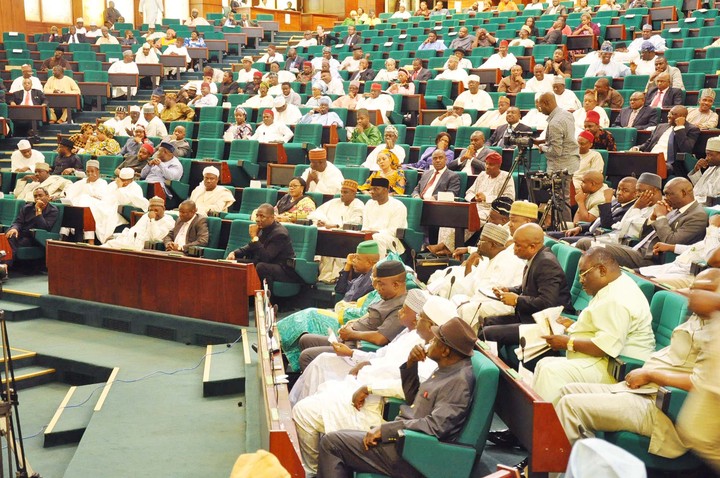
By Modupe Gbadeyanka
The House of Representatives Minority Caucus Ad-hoc Committee on Tax Laws on the Allegations of Illegal Alterations on the Gazetted Tax Laws has released an interim report on its findings, accusing the executive arm of government of removing and inserting some items in the bills passed by the parliament.
The chairman of the 7-man panel, Mr Afam Victor Ogene, in the report released on Friday, said the laws were altered after they were transmitted to the executive by the National Assembly for assent by President Bola Tinubu.
Recall that a member of the green chamber of the parliament, Mr Abdulsamad Dasuki, raised an alarm on the discrepancies in the gazetted version and the one passed by the legislative arm of government.
The Minority Caucus of the House of Reps, headed by Mr Kingsley Chinda, in a statement on December 28, 2025, vowed to “unconditionally protect the independence of the legislature and our democracy.”
It then constituted the committee on January 2, 2026, to get to the roots of all the issues surrounding the scandal.
The next day, the lower chamber of the National Assembly, through its spokesman, Mr Akintunde Rotimi, released a statement announcing that the Speaker, Mr Abbas Tajudeen, had directed the release of the four tax reform Acts; The Nigeria Tax Act, 2025; The Nigeria Tax Administration Act, 2025; The National Revenue Service (Establishment) Act, 2025; and The Joint Revenue Board (Establishment) Act, 2025, duly signed into law by the President, for public record, verification, and reference.
The statement further added that the Speaker has also ordered an internal verification and immediate public release of the Certified Acts to eliminate doubts, restore clarity, and protect the sanctity of the legislature.
In its report yesterday, the panel said it discovered some alterations in the gazetted version, noting that, “given the anomalies, illegalities, and impunity observed, which clearly undermine the National Assembly’s constitutional powers and democracy, the committee finds the current evidence sufficient to warrant a deeper investigation. This will ensure accountability for the affront against the legislature.”
“To achieve this, the committee respectfully requests an extension to conduct a more thorough examination of the matter,” it added.
-

 Feature/OPED6 years ago
Feature/OPED6 years agoDavos was Different this year
-
Travel/Tourism9 years ago
Lagos Seals Western Lodge Hotel In Ikorodu
-

 Showbiz3 years ago
Showbiz3 years agoEstranged Lover Releases Videos of Empress Njamah Bathing
-

 Banking8 years ago
Banking8 years agoSort Codes of GTBank Branches in Nigeria
-

 Economy3 years ago
Economy3 years agoSubsidy Removal: CNG at N130 Per Litre Cheaper Than Petrol—IPMAN
-

 Banking3 years ago
Banking3 years agoSort Codes of UBA Branches in Nigeria
-

 Banking3 years ago
Banking3 years agoFirst Bank Announces Planned Downtime
-

 Sports3 years ago
Sports3 years agoHighest Paid Nigerian Footballer – How Much Do Nigerian Footballers Earn



